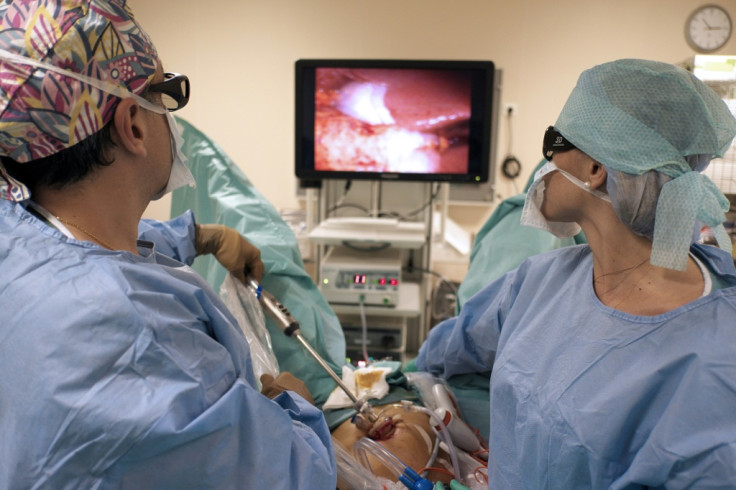Almost 5,000 Women With Endometriosis Were Told They Were 'Making A Fuss About Nothing'
Endometriosis affects one in 10 women between the ages of 12 and 51 years old

To recognise Endometriosis Month, celebrated in March every year, women have been calling on health officials to turn their attentions to researching female health.
The UK spends more than £8 billion a year in treatment costs for endometriosis, a condition that affects one in 10 women between the ages of 12 and 51 years old.
Despite the huge finances being put towards endometriosis, which describes cells similar to the lining of the uterus growing outside of the womb, symptoms are often missed or ignored.
The main symptoms of endometriosis include pain, heavy vaginal bleeding between and during periods and fertility issues.
Those with endometriosis can also experience include painful bowel movements, pain when urinating and pain during or after sex.
According to a study conducted by the charity Endometriosis UK, women across the nation are waiting an average of eight years and ten months for an endometriosis diagnosis.
In a statement, Emma Cox, the Chief Executive of Endometriosis UK, said: "Taking almost nine years to get a diagnosis of endometriosis is unacceptable. Our finding that it now takes even longer to get a diagnosis of endometriosis must be a wake-up call to decision-makers to stop minimising or ignoring the significant impact endometriosis can have on both physical and mental health."
In addition to exposing the lack of research into female health conditions, the study, which interviewed 4,371 females who have been diagnosed with endometriosis, also highlighted how medical professionals regularly minimise or dismiss symptoms.
Since 2020, the average wait time for an endometriosis diagnosis in Scotland, has increased by four months.
Out of the 4,371 females who have been diagnosed, 47 per cent of the respondents said that they had tried to get professional help for their symptoms at least 10 times before being diagnosed. A staggering 70 per cent of the females had visited their GP 15 times or more.
Former Love Island AU contestant and Reality TV Star Erin Barnett has been received a series of over-the-counter treatments for her endometriosis, adenomyosis, and polycystic ovary syndrome (PCOS).
Since she was 15 years old, the now-28-year-old has had more than 18 surgeries to tackle her uterus discomfort.
Last year, after her medical condition had devastated her finances and mental health, Barnett was approved for a hysterectomy.
It took the Love Island Star years, after being shut down by several medical professionals, to receive the operation that she had requested.
"How many surgeries must one go through? I've been on all the medications you can think of, I've tried everything," she said, going on to note: "When did we stop being in charge of our own bodies? People always talk about your body, your choice but it's not like that at all. You actually don't get much of a choice in your body."
After hearing the news, Barnett explained: "I ran to my partner and I started crying because I was just so happy, I cannot believe it's actually about to happen for me... I feel like I'm being reborn because I'm going to have my life back."
Before her gynaecologist approved the surgery, Barnett said that she had not only been heavily bleeding between periods for a month straight, but she had also suffered two painful ovarian cyst ruptures.
The double ovarian cyst rupture resulted in her left her abdomen being filled with blood and bloating so much that she "looked nine months pregnant."
The 28-year-old also said that one doctor, who had previously performed a procedure that removed her ovary from the wall of her uterus, made her feel like she was "making a fuss about nothing" and likened her life-threatening condition to irritable bowl syndrome (IBS).
While hysterectomies are considered minimally invasive surgeries, the procedure is only used as a last resort as they are "not emergencies" says the NY State Department of Health.
"Why can't we make that decision for ourselves? Why do we have to be convinced that children are the way of the world and every woman must have a child to live a good life?" Barnet added.
© Copyright IBTimes 2025. All rights reserved.




















